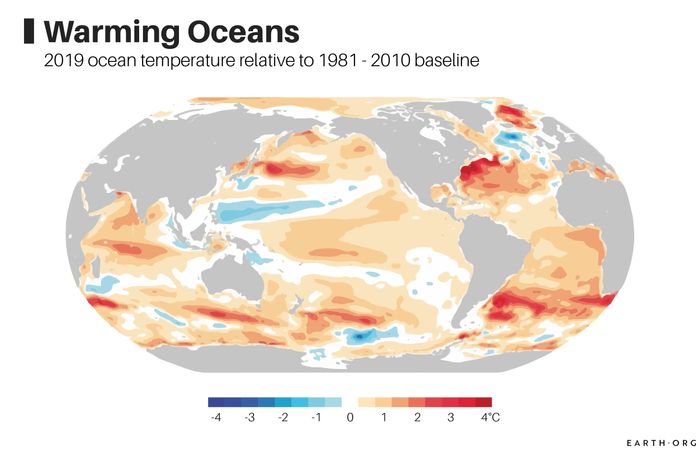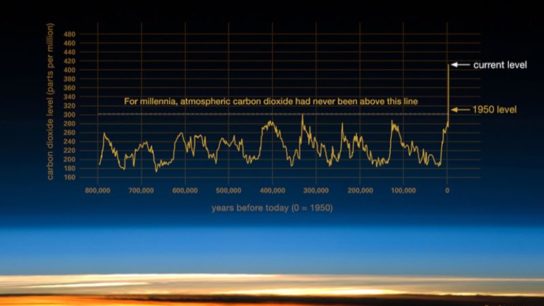
Why this Metric?
Excess greenhouse gases are trapping heat in our atmosphere, but close to 90% of that heat has been absorbed by the ocean. Its predominantly dark colors attract heat, and water can store more energy per unit volume than air, making it an excellent heat sink.
The first measurement of oceanic heat content, performed in 2000 by Sydney Levitus of the U.S. National Oceanic and Atmospheric Administration (NOAA), identified a 40-year warming trend that has accelerated since. A more recent study found that the past five years are the top five warmest years since modern measurements began. To give a sense of scale, the ocean is absorbing the equivalent of 8 to 12 Hiroshima atom bombs of heat per second.
Exploring the Metric
Because the ocean can absorb so much heat while keeping its temperature stable, many oceanic species are adapted to a tight temperature niche. Coral reefs are an example of how slight changes in temperature, if sustained, can kill off entire ecosystems.
Ocean warming is also not uniform, and there is such a thing as an oceanic heatwave. These arise from a variety of factors, and have caused ecological disasters like mass starfish and kelp forest die-offs, and deadly algae blooms.
along the Great Barrier Reef, the California kelp forests and off the coast of Alaska.
Where the Numbers Come From
The data was patched together from a variety of point measurement sources including moorings, gliders, and robotic instruments under the Argo program, which monitor the upper 2km depth of ocean around the world.
The data was compiled by the Institute of Atmospheric Physics (IAP) and gap-filling between points done by computer models.
Future Outlook
Oceanic ecosystems can and will adapt to warmer waters in time, though too violent an onset can cause mass dying to occur before the empty niches are filled. We are navigating uncharted waters here and it is difficult to tell how things will develop.
What is certain is that coral reef bleaching and kelp forest loss are just two examples of rich underwater habitats disappearing. It is likely that the ocean will continue to depopulate itself of fish in the coming decades, threatening livelihoods and subsistence diets.
This article was written by Owen Mulhern.










![The Statistics of Biodiversity Loss [2020 WWF Report]](https://u4d2z7k9.rocketcdn.me/wp-content/uploads/2020/12/lprwinkyTHB-544x306.jpg)





